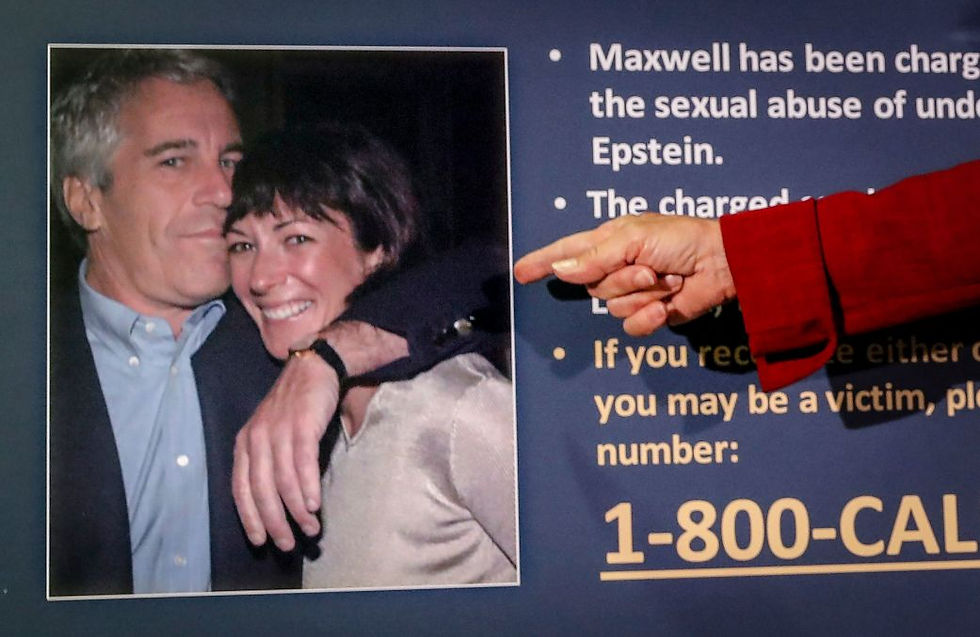Trump just made an already difficult Ghislaine Maxwell situation even more problematic
- joao luis
- 26 de jul. de 2025
- 3 min de leitura
Interviewing Ghislaine Maxwell marks the Trump administration’s first major effort to address widespread criticism over its handling of the Jeffrey Epstein case. Deputy Attorney General Todd Blanche concluded two days of interviews with Epstein’s convicted associate on Friday.
However, there were already numerous reasons to be skeptical about this move and what it might achieve, given the interests of both parties involved.
President Donald Trump embodied those concerns in a significant way on Friday.
While answering questions en route to Scotland, Trump repeatedly hinted at the possibility of pardoning Maxwell for her crimes.
“Well, I don’t want to talk about that,” Trump initially said.
When pressed further, he added, “It’s something I haven’t thought about,” while pointedly noting, “I’m allowed to do it.”

This wouldn’t be the first time Trump appeared to use the promise of a pardon to influence someone who might provide evidence affecting him personally and politically. In this case, Trump has known ties to Epstein, and his administration is now scrambling to rectify its mishandling of the Epstein files after previously pledging to make them public.
A similar scenario unfolded during the Russia investigation, when Trump repeatedly suggested he might pardon key witnesses such as Paul Manafort, Michael Flynn, and Michael Cohen. Critics argued these hints amounted to obstruction of justice.
While Special Counsel Robert Mueller’s report did not reach a conclusion on obstruction, it cited Trump’s pardon statements as “evidence” that his actions “had the potential to influence Manafort’s decision whether to cooperate with the government.”
Manafort ultimately became an uncooperative witness, with a bipartisan Senate report noting that his repeated lies hindered their investigation. Trump later pardoned Manafort in a move widely seen as a reward for his lack of cooperation.
This piece of history looms large here, given the clear parallels.
However, Trump is only making an already questionable situation worse. There were already plenty of reasons to doubt the decision to interview Maxwell, and no one involved seems particularly concerned with addressing those issues or countering the perception of them.
The first reason is the current status of Maxwell’s criminal case.
It might sound far-fetched that Trump would pardon a convicted child sex trafficker like Maxwell—despite having once “wished her well” after she was charged—but there are other ways his administration could assist her. For example, they could intervene in her ongoing appeal of her 2021 conviction.
The Trump Justice Department has already taken highly questionable actions in another criminal case involving someone from whom Trump sought political favors: New York Mayor Eric Adams. Earlier this year, the administration moved to dismiss charges against Adams, implicitly linking the decision to its desire for the New York Democrat’s cooperation in its immigration crackdown.
Several prosecutors resigned in protest, with one calling it a “quid pro quo” in her resignation letter. The judge overseeing the case appeared to share that view.
“Everything here reeks of a bargain: dismissal of the indictment in exchange for immigration policy concessions,” the judge remarked.
Maxwell’s attorney, David Oscar Markus, has also been notably deferential toward Trump and his administration.
Last week, he called Trump the “ultimate dealmaker” while alleging that the Justice Department had breached a deal with Maxwell. This week, he praised the Trump administration’s “commitment to uncovering the truth in this case” and expressed gratitude that the government is “trying to uncover the truth.”
On Friday, Markus also hinted at openness to a pardon.
“The president said this morning that he has the power to do so,” Markus said, “and we hope he exercises that power in a right and just way.”
The lawyers involved in the case are also relevant to consider here.




Comentários